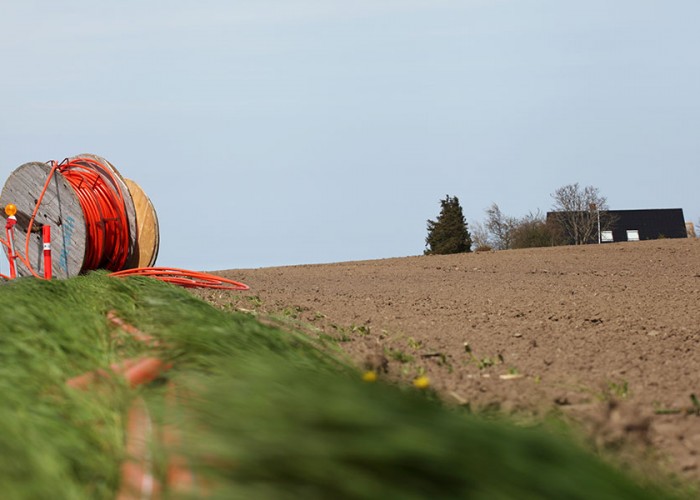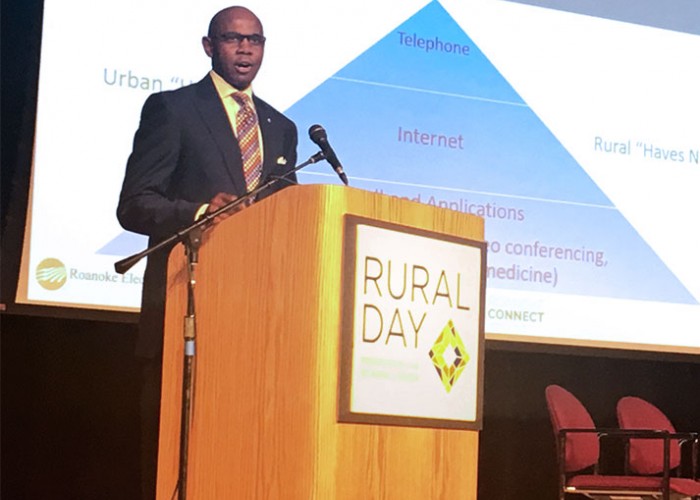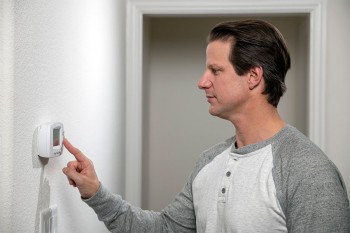- Home /
- Energy /
- Energy Tech /
- Broadband Bill Opens Up Options for Electric Co-ops
Broadband Bill Opens Up Options for Electric Co-ops
Hurdles removed for connecting rural areas
Rural North Carolinians, including many served by electric cooperatives, often lack access to high-speed internet service at home. State lawmakers recognize this as a complicated problem that will not be solved unless barriers to deploying high-speed internet (also known as “broadband”) in rural communities are identified and removed.
Earlier this year, with help from NC electric co-ops, the General Assembly assessed legal hurdles that were preventing most electric co-ops from even exploring a potential role in rural broadband deployment. Lawmakers then quickly introduced and passed the “Electric Co-op Rural Broadband Services” bill. On May 30, Governor Roy Cooper signed the bill into law.
“We now have more flexibility to utilize suitable co-op broadband infrastructure to not only deliver innovative energy solutions, but also provide access to economic development, education and healthcare opportunities critical for rural prosperity and improved quality of life.”
“The new law will by no means solve the complicated rural broadband problem, but it does open up options for electric co-ops that are assessing the needs of their communities and may be considering ways to facilitate broadband deployment through partnerships in unserved and underserved areas,” said Nelle Hotchkiss, senior vice president and chief operating officer for North Carolina’s Electric Cooperatives.
“We now have more flexibility to utilize suitable co-op broadband infrastructure to not only deliver innovative energy solutions, but also provide access to economic development, education and healthcare opportunities critical for rural prosperity and improved quality of life.”
The new North Carolina law makes the following changes:
- Allows electric co-ops to access federal funds, including USDA Rural Broadband funding;
- Provides greater flexibility to electric co-ops when structuring partnership/lease terms with broadband partners and subsidiaries;
- Clarifies that it is permissible to use existing electric co-op fiber deployed primarily for electrical purposes for the secondary purpose of providing broadband services; and
- Limits electric co-ops’ liability when they make dual-use of their fiber to provide broadband services.
Electric co-ops will still need to conduct careful analysis when evaluating the cost feasibility of broadband deployment, and it is expected that interested co-ops will consider forming partnerships to enable deployment. In March, for example, North Carolina’s Electric Cooperatives announced a partnership with RiverStreet Networks, an established internet service provider. The partnership will execute several demonstration projects that could become models for providing broadband services using electric co-op fiber networks.
North Carolina is not the only state to enact a law to address the rural broadband problem. Other states, including Alabama, Georgia, Indiana, Missouri and Tennessee, have passed similar legislation that facilitates the deployment of rural broadband by electric co-ops.
-
Making strides with broadband
-
Plugging in to Community
North Carolinians must reconnect with communities to bridge the rural/urban divideNC Co-ops: Rural Broadband Infrastructure is Critical
Electric co-op leaders weighed in on connectivity at a rural development summitBroadband Access Leads ‘Rural Day’ Discussion
NC electric co-ops support efforts to provide meaningful connectivity








Comments (3)
Gerri Osborne |
August 06, 2019 |
reply
TINA R STURDIVANT |
September 11, 2020 |
reply
Carolina Country |
September 11, 2020 |
reply